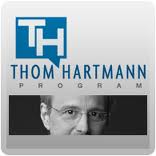 It's no longer far-fetched to say that soon we will be able to shop, work, travel, and commute, all without interacting with a single person. And, while that may sound appealing to the introverts out there, it's also the reason that we need a basic minimum income.
It's no longer far-fetched to say that soon we will be able to shop, work, travel, and commute, all without interacting with a single person. And, while that may sound appealing to the introverts out there, it's also the reason that we need a basic minimum income.
All of that automation and self-service means fewer jobs available for American workers, and that means more people will find themselves unemployed.
According to a recent article by Paul Buchheit over at CommonDreams.org, “Today's tech and telecom companies build products that require less American workers, less middle-income workers, and less workers overall.”
He explained that before long, we may find ourselves competing with robots that don't complain or ask for higher wages. And, that may leave us, the actual human beings, in need of a steady paycheck.
A basic minimum income is the perfect solution for this dilemma, and it could be paid for with a few simple, corporate reforms.
By instituting a carbon tax on our biggest polluters and a transaction tax on Wall Street, we could cover much of the cost of guaranteeing that everyone has enough money to meet their basic needs. The difference could be covered by making it harder for corporations to skip out on their taxes, and putting more reasonable limitations on corporate patents.
With a few reforms like these we could once again be a nation that values people over profit, and we could prepare ourselves for the future economy. If we don't, we're likely to spend the money anyway on the various social programs that we'll need when more and more Americans find themselves out of work.
A basic minimum income would guarantee that all of our fellow Americans have a basic standard of living, and it would leave us the time to design even better robots.
Are "self-service" checkouts putting us out of work?
By Thom Hartmann A...



